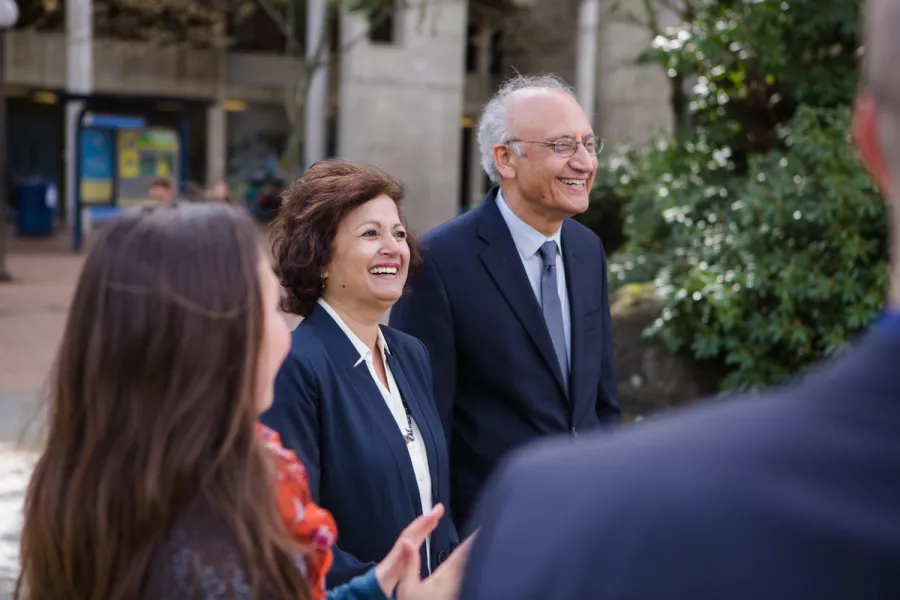The last thing Uzma and I expected on our recent visit to Pakistan was air space closed to travel. The latest conflict between India and Pakistan triggered memories from our youth of the 1965 and 1971 wars between the two countries, memories of air strikes, blackouts, nights in trenches, displaced people and ultimately, the continuing impact those conflicts have had on communities.
While we were traveling throughout South Asia and the Middle East to promote Western Washington University and higher education opportunities in the U.S., the conflict also reminded us of the important role that universities play in increasing cultural competency, and the responsibility we have to create circumstances that allow individuals from all backgrounds, races and ethnicities to learn, live and work together.
As the population of the U.S. continues to increase, so does its diversity. The U.S. Census Bureau projects that by 2044, more than half of all Americans will be part of an ethnic minority group, and by 2060, nearly one in five of the nation’s total population will be foreign born.
Our personal and professional experience in the United States and abroad has convinced us of higher education’s potential for transformative impact. We have seen firsthand that its benefits are not just for individual students, but a fundamental public good that creates brighter futures for communities, states, nations, and indeed, the world. We believe that increased international access to higher education can dilute the alarming growth of nationalistic and tribal conflicts, and enlighten people beyond their borders and internet bubbles, too.
The road to healing many of the domestic and international disputes that divide us will require the creation of more opportunities for people to share experiences with those different from themselves, including people from other countries. These interactions are valuable whether one is traveling to another country or welcoming people from other countries into one’s community. Beyond being just a path to a good job, increasing access to high-quality higher education in the U.S. is a powerful tool for international peace and unity.
The future of our children is inextricably tied to the future of the rest of the world. We hope that our nation’s excellent colleges and universities—including Western, of course—can play an even greater role in promoting intercultural understanding, economic prosperity, and peace. At Western, we are committed to training the next generation of leaders by encouraging independent thinking, complex problem solving, cultivation of respect for all, and cultural competency that embraces and values diversity for the good of the world.
